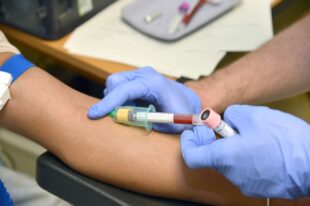Wednesday, 27 January 2016, was a momentous day for the NHS Infectious Diseases in Pregnancy Screening (IDPS) programme.
This was when it was announced that antenatal screening for rubella (German measles) susceptibility will stop. So, from 1 April 2016, pregnant women in England will no longer be offered screening for rubella susceptibility. The other UK nations are now considering their response.
 The move follows reviews of the evidence by the UK National Screening Committee (UK NSC) in 2003 and 2012. On both occasions the evidence showed that screening for rubella susceptibility during pregnancy did not meet the UK NSC criteria for a screening programme.
The move follows reviews of the evidence by the UK National Screening Committee (UK NSC) in 2003 and 2012. On both occasions the evidence showed that screening for rubella susceptibility during pregnancy did not meet the UK NSC criteria for a screening programme.
Rubella is a viral infection that causes a rash and fever. Infection during pregnancy can lead to serious health problems for the unborn baby. However, the success of the measles, mumps and rubella (MMR) vaccination means the disease is now incredibly rare.
Other evidence to support the ending of screening for rubella susceptibility includes:
- rubella infection in the UK is at a level defined as eliminated by the World Health Organisation
- screening for rubella susceptibility does not give any protection to the unborn baby in the current pregnancy
- the test may offer false reassurance to women that they are not susceptible to rubella infection
- stopping antenatal screening is unlikely to result in increased rates of congenital rubella
We (the IDPS programme) will be working closely with screening and immunisation colleagues between now and April to ensure the cessation of rubella susceptibility screening is a smooth process.
The key points for maternity services to note are:
- the offer of antenatal screening should stop for all women in England booking on or after 1 April
- screening for HIV, hepatitis B and syphilis should continue to be offered to all eligible women
- the rubella screening pathway should be completed for women booking and accepting screening before 1 April, meaning:
- laboratories will test decreasing numbers of samples in May, June and July 2016 and will need to adjust assay supplies accordingly
- continued reporting and follow-up of results for women booking into this cohort by screening teams
- continued administration of postnatal MMR by maternity services and referral to primary care for second vaccination for non-immune women in this booking cohort
We have updated our Section 7a service specification, programme standards and operational handbooks. They will be published shortly. We are currently updating other resources, including website content, working collaboratively with our information and education team.
Workshops are planned in early March, alongside PHE’s Immunisation and National Infections Service teams, to provide guidance for professionals and women to support the implementation of the cessation strategy.
It’s certainly going to be a very busy few months for the IDPS programme team with the support of our screening and immunisation colleagues.
PHE Screening blog
The PHE Screening blog provides up to date news from all NHS screening programmes – replacing our previously published newsletters. You can register to receive updates direct to your inbox, so there’s no need to keep checking for new blogs.